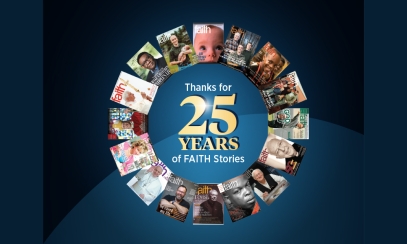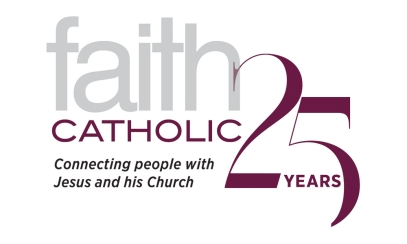Difficult times can open us up to beautiful moments
As a priest, I am invited to take part in people’s lives in some very special ways. Many of them are very happy occasions: a child’s baptism; the experience of reconciliation with God and others; the day when a couple proclaims and begins to live their marriage covenant; the first reception of Eucharist; any one of the many steps that lead to a person’s unity of faith with the Catholic Church; and many more to be sure. Yet, some of the most powerful moments in my priestly ministry have come when ministering to the sick and dying.
In times of sickness and uncertainty there can be a deep openness to God’s power in our lives. I have witnessed it time and again when offering pastoral care to those who are sick at home, hospitalized or terminally ill. What a privilege it is to share in the sacrament of the anointing of the sick. What used to be known as “extreme unction” or the “Last Rites,” and usually reserved until a short time before death, has been transformed into a beautiful sacrament that permits family and friends to gather with a sick or dying loved one in order to share in the power of prayer and God’s healing Spirit. Time and again I have witnessed this sacrament’s ability to bring peace, healing and reconciliation to individuals and families who have been struggling on fronts domestic, physical and spiritual.
The anointing of the sick offers comfort and reassurance to the one who is ill, who may be anticipating surgery, or who may have grown weak under the burden of advancing years. At the same time, in the gathered presence of family and friends, the domestic Church is a visible reminder that although illness may present a barrier, it does not truly separate us from God’s love for us; nor should illness separate us from the knowledge that while one may be physically apart from the Church, the Church can and must be present for those who are sick or dying.
When Bishop Kenneth Povish retired nearly seven years ago, it was with the knowledge that he was a cancer survivor. He also knew there was a possibility that his cancer could return. Indeed it has. Yet with God’s grace through the anointing of the sick and supported by the power of the prayers of so many, Bishop Povish continues what may be his most important ministry – the witness he offers through a life lived more closely in union with Christ’s own suffering. Illness has changed his life and transformed his person.
Harkening back to his days in seminary almost 50 years ago, Bishop Carl Mengeling shares with us the beautiful story of his Uncle Bob. In the summer of 1953, his Uncle Bob died of lung cancer, surrounded by the gathered Church – his wife and family, a young parish priest, and an even younger seminarian who would later be a future priest and bishop. Brought together by the Last Rites – reconciliation, the anointing of the sick, and viaticum (the last reception of Eucharist) – a young Carl Mengeling witnessed an important lesson about God’s mercy that he has never forgotten.
This month we focus on the beautiful but often-misunderstood sacrament of the anointing of the sick. It is often easy to see God present in the joyful times of our lives. The anointing of the sick teaches us that times of illness, sadness and death can also be beautiful moments that open our hearts and minds to God’s loving and healing presence among us. And so our journey in FAITH continues.



